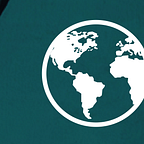TOURISM GEOGRAPHIES GUIDELINES FOR ACADEMIC PAPERS
(TG & TGx) How to Title Your Journal Article: Rules and Tips
Possibly the single most important part of your paper is the title!
The goal of the title is to capture the interests of potential readers so they will then read your abstract, and then read and cite your paper. As such, the title is possibly the most crucial part of your paper from a “visibility” and “citation” perspective. You really should choose your title with care.
Here are some tips based on what I have learned from various sources on this topic over my years as the TG journal Editor-in-Chief.
Creating Curiosity
You want to create a Curiosity Gap. This is done through a careful balance of having too much information and too little in the title. If your title is too informative, then more people are likely to decide that they do not need to read it for their purposes. If you title is too vague, however, then potential readers are more likely to decide that it is not worth reading.
There are two types of curiosity that you can try to generate:
(a) novelty or newness; and
(b) epistemic knowledge building.
While somewhat overlapping, we can think of novelty as tapping into the human curiosity to explore unknown places, ideas and concepts. It proposes new ways of seeing or uncovers hidden realities.
Epistemic curiosity taps into human interest in how our known thoughts and concepts might evolve with new knowledge. It builds and connects concepts that we are already familiar with.
Be Clear
You know your research inside and out. However, most of the rest of the world has no clue as to what you are doing. A clear title is essential to capture the widest possible relevant audience for your paper.
Here are some rules:
- USE COMMON WORDS — the more uncommon words that are in a titles, the less the paper is downloaded
- USE SHORT TITLES — it is generally believed that you should have no more than 12 words in your title (including the subtitle) because long titles are difficult to remember and downloaded less are less likely to be downloaded (see the Curiosity Gap comment above). Also, if you have a subtitle keep it short. Tourism Geographies does not allow more than 12 words in a title.
- AVOID WORDS WITH LITTLE OR NO MEANING — these make title unnecessarily long (again see the Curiosity Gap comment above). In particular, do not use the words “A Study of…” or “Exploring…” or “Understanding…” or anything like that. All journals articles are a study of something, or are exploring something. You do not need to tell your reader that you are doing that.
- DO NOT USE ACRONYMS OR ABBREVIATIONS in your title without spelling them out. While you and your friends may understand the acronym, many potential readers will not.
- DO NOT USE THE WORD “CASE” in your title because case study papers are downloaded and cited much less than other papers. (See: Please Avoid Using “Case Study” in Your Paper Title)
- AVOID HUMOR — humor, puns and innuendos are often are culturally specific and not understood by other cultures. In addition, papers with such titles may not show up as often in search results.
- USE DECLARATIVE TITLES — because these types of titles were found to be downloaded somewhat more than other types, which increases their alt-metric scores. However, I have not heard that they are cited more than other types. Here are the three most common types of titles:
- Descriptive (most common) — describes the subject of the article but does not reveal the main conclusions. Example: ‘Internet Mediated Representations of Ecotourism’
- Declarative — states the main findings or conclusions in the title. Example: ‘Internet Representations of Ecotourism Fail to Effectively Integrate Tourism and Ecology’
- Interrogative — introduce the subject in the form of a question. Example: ‘How Does the Internet Mediate Representations of Ecotourism?’
Who would have thought that the title of a paper would be so important — and so complicated?
Note: Previously, I wrote about the difference between case study papers and theory-based papers and how that influences your title. That information is less comprehensive, but you still might find it helpful.
See Also: Taylor & Francis Author Guide to Discoverability — on how to make your paper more visible and cited.
